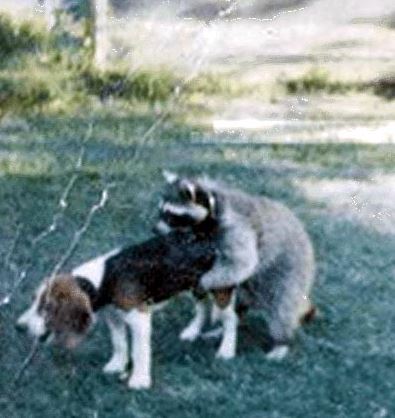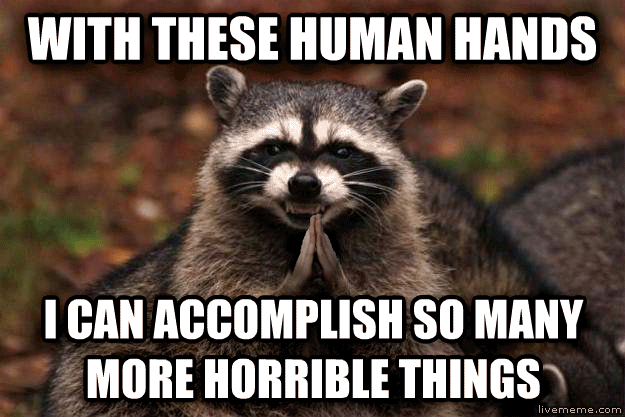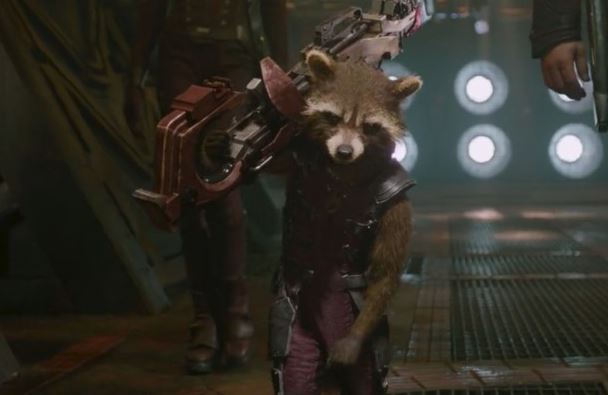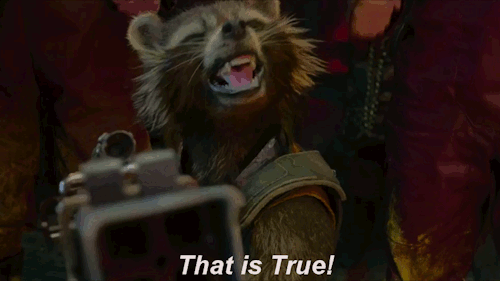It looks like you're using an Ad Blocker.
Please white-list or disable AboveTopSecret.com in your ad-blocking tool.
Thank you.
Some features of ATS will be disabled while you continue to use an ad-blocker.
When the human race is gone which animal do you think will evolve into the next intelligent species?
page: 10share:
This is just something from the back of My head, but i think tha AI would be the next "species" to roule everything, we are so damn smart that we
wanto make life out of something that is supposed to be dead without human interference... Yes think of the possibilities, both Negative And
positive! The AI would KILL humans because we are the weaker kind, all the animals would be ALIVE because they are left alone And not Killed for food
And fur.
So i gotta say... This was probably WHY we died And what would roule earth after we are gone.
3cpo And r2d2 would have orgies with 3D printers And Canon cameras making dirty movies for iPhone 30's And samsungs.
Peace!
So i gotta say... This was probably WHY we died And what would roule earth after we are gone.
3cpo And r2d2 would have orgies with 3D printers And Canon cameras making dirty movies for iPhone 30's And samsungs.
Peace!
Another model of human. Its the one they use frequently throughout the universe. Because we're capable of ascending to Higher Mind.
By the way, on Higher Levels, its not just function. Its Function AND Form. Beauty is needed for self esteem and not EGO like misogynsts and haters of humanity always try to maintain along with any form of self respect or mental health being said to be EGO. You have to wed Mother's Energies, ie the Female and Compassion, Sensitivity, Equality, Beauty, with Father's Freedom, Creation, Teaching, Protector, to be whole and go home. So on Higher Levels, its more beautiful.
We're not going to sit around and let them put souls into beast like or unattractive molds and break their spirits into drones.
By the way, on Higher Levels, its not just function. Its Function AND Form. Beauty is needed for self esteem and not EGO like misogynsts and haters of humanity always try to maintain along with any form of self respect or mental health being said to be EGO. You have to wed Mother's Energies, ie the Female and Compassion, Sensitivity, Equality, Beauty, with Father's Freedom, Creation, Teaching, Protector, to be whole and go home. So on Higher Levels, its more beautiful.
We're not going to sit around and let them put souls into beast like or unattractive molds and break their spirits into drones.
originally posted by: boymonkey74
I have always wondered which If any animal will evolve into intelligent beings like ourselves.
If we just vanished and didn't nuke the world or anything which animal would it be?.
Obviously I would say Chimpanzees or another great ape but what If they were gone also?.
Would whatever creature have to evolve opposable thumbs? I think so but then again with the increased O2 in the air with us gone would insects have a chance? would their hive minds increase in intelligence?.
I have no idea but it is fun to guess.
So which animal is going to have the chance of space travel If we go?.
Thoughts?.
BTW this is not a discussion on whether you believe in evolution or not...plenty of other threads discussing that so go elsewhere please If you want to ignore all the evidence and genetics etc.
You have to answer what got rid of us humans before anyone could give a credible answer: Nuclear weapons? 100% lethal pandemic? Climate Change? Nanotechnology gone awry? Asteroid strike? Nearby Gamma Ray Burst? Or did we just choose to leave for another star system?
Each of these ways to make humanity on Earth extant would have a different effect and most of them would take down other higher forms of life as well as us so no, chimpanzees etc.
Superhumans and sentient machines will rule!
edit on 13-1-2015 by FormOfTheLord because: (no reason given)
a reply to: boymonkey74
No low level intelligent never EVOLVE to a high level one unless their species were genetic modified. Oh, yes human-beings are evolving so as other animals. The difference is that human-beings are born high level or a sort of modified low level. That is why no monkey turns out to be a human.
No low level intelligent never EVOLVE to a high level one unless their species were genetic modified. Oh, yes human-beings are evolving so as other animals. The difference is that human-beings are born high level or a sort of modified low level. That is why no monkey turns out to be a human.
originally posted by: Paperjacket
a reply to: boymonkey74
No low level intelligent never EVOLVE to a high level one unless their species were genetic modified.
So who exactly modified humans, apes, dolphins or any other intelligent species on earth?
Oh, yes human-beings are evolving so as other animals. The difference is that human-beings are born high level or a sort of modified low level.
What evidence do you have to support this particular supposition?
That is why no monkey turns out to be a human.
Good thing that evolutionary theory doesn't indicate or postulate that modern humans evolved from monkeys then!
ETA Sorry boymonkey , I didn't mean to cross that line into an evolutionary discussion.
Paperjacket, if you care to continue the discussion as it relates to Evolution feel free to PM me
edit on 13-1-2015 by peter vlar because: (no
reason given)
a reply to: peter vlar
I have a thread partly answered your questions.
www.abovetopsecret.com...
Dont you feel strange that HUMAN is the only creature who destroys this planet and do you really believe that the nature mother will evolve a creature who will destroy it?
I have a thread partly answered your questions.
www.abovetopsecret.com...
Dont you feel strange that HUMAN is the only creature who destroys this planet and do you really believe that the nature mother will evolve a creature who will destroy it?
As there are already intelligent animals, it would be just matter of time before one of them evolves more and is able to use its intelligence to great
accomplishments like we humans did.
But in case of global extinction, then there is no need to wait for another Big Bang as someone suggested, as once our little star is done, it will grow enough to eat earth and rest of inner planets, while vaporize rest of system...
There will be no earth... but life would case to exist much sooner... anyway...
Look at bright side of things... no one will rule our world...
But in case of global extinction, then there is no need to wait for another Big Bang as someone suggested, as once our little star is done, it will grow enough to eat earth and rest of inner planets, while vaporize rest of system...
There will be no earth... but life would case to exist much sooner... anyway...
Look at bright side of things... no one will rule our world...
edit on 15-1-2015 by SuperFrog because: (no reason given)
I've been on ATS all morning and I now think you should change the title of your thread.
I propose
When the human race is gone which animal do you think will evolve into the first intelligent species?
I propose
When the human race is gone which animal do you think will evolve into the first intelligent species?
Well, the creature would have to be omnivorous, already pretty smart, and capable of living in a diverse range of environments.
Which means the only real candidates are PIGS!
The fact they taste great can only help push them towards intelligence as a survival mechanism. Or extinction by BBQ...
Which means the only real candidates are PIGS!
The fact they taste great can only help push them towards intelligence as a survival mechanism. Or extinction by BBQ...
edit on 16-1-2015 by MarsIsRed because: (no reason given)
Gods will return and start thier human expiriment over after they repair the damage the current humans have done. . . . . .
Cats!?..Pfftt.. Raccoons are well on their way! Without humans, cats will be systematically eliminated from the environment. Any surviving dogs will
be forced to pack up and head to the wilderness.
Any surviving dogs will be forced to pack up and head to the wilderness.

Did I mention... Raccoons already have hands!


Any surviving dogs will be forced to pack up and head to the wilderness.

Did I mention... Raccoons already have hands!


Since humans are obviously the benchmark the op is comparing to, how bout man's closest relatives and closest dna match, chimps.
Coming up with all sorts of other cute animals taking our place, is just that, cute.
I don't get how chimps are not the obvious #1 contenders since they obviously are most like us already.
WASHINGTON, Wed., Aug. 31, 2005 — The first comprehensive comparison of the genetic blueprints of humans and chimpanzees shows our closest living relatives share perfect identity with 96 percent of our DNA sequence, an international research consortium reported today. In a paper published in the Sept. 1 issue of the journal Nature, the Chimpanzee Sequencing and Analysis Consortium, which is supported in part by the National Human Genome Research Institute (NHGRI), one of the National Institutes of Health (NIH), describes its landmark analysis comparing the genome of the chimp (Pan troglodytes) with that of human (Homo sapiens). "The sequencing of the chimp genome is a historic achievement that is destined to lead to many more exciting discoveries with implications for human health," said NHGRI Director Francis S. Collins, M.D., Ph.D. "As we build upon the foundation laid by the Human Genome Project, it's become clear that comparing the human genome with the genomes of other organisms is an enormously powerful tool for understanding our own biology." The chimp sequence draft represents the first non-human primate genome and the fourth mammalian genome described in a major scientific publication. A draft of the human genome sequence was published in February 2001, a draft of the mouse genome sequence was published in December 2002 and a draft of the rat sequence was published in March 2004. The essentially complete human sequence was published in October 2004.
chimp and human genomes are very similar and encode very similar proteins. The DNA sequence that can be directly compared between the two genomes is almost 99 percent identical. When DNA insertions and deletions are taken into account, humans and chimps still share 96 percent of their sequence. At the protein level, 29 percent of genes code for the same amino sequences in chimps and humans. In fact, the typical human protein has accumulated just one unique change since chimps and humans diverged from a common ancestor about 6 million years ago. To put this into perspective, the number of genetic differences between humans and chimps is approximately 60 times less than that seen between human and mouse and about 10 times less than between the mouse and rat. On the other hand, the number of genetic differences between a human and a chimp is about 10 times more than between any two humans.
Coming up with all sorts of other cute animals taking our place, is just that, cute.
I don't get how chimps are not the obvious #1 contenders since they obviously are most like us already.
well no primates of any sort I'd put it towards animals like raccoons who problem solve regularly and have functional hands. Once humans just
disappear it will take a special kind of cleverness to make a go in the concrete wasteland which will force raccoons to become even more intelligent
as resources become scarce.
Plus I like raccoons.
As for getting to sentience quickest, I give that to ravens.
To those saying insects, insects generally survive by excessive over reproduction not intelligence or guile, they are one of the last species expect to really become people.
Plus I like raccoons.
As for getting to sentience quickest, I give that to ravens.
To those saying insects, insects generally survive by excessive over reproduction not intelligence or guile, they are one of the last species expect to really become people.
edit on AMTue, 03 Mar 2015 08:27:06 -060003America/Chicago3102015Tuesdayf by Puppylove because: (no reason
given)
Were another species going to evolve into high intelligence, it wouldn't be an herbivore. Big brains are expensive. They require a huge caloric
intake to function. You can only get those sorts of calories from eating meat.
There are some animals on the verge now: dolphins, ravens/crows, octopuses, maybe dogs.
I think it would be the most fun for a truly alien intelligence (from our perspective) to achieve high sentience, the octopus or the crow fit the bill. Their brains are so incredibly different from ours. Dolphins and dogs have the mammalian brain we can relate to. The octopus and crow may as well be extra terrestrials.
There are some animals on the verge now: dolphins, ravens/crows, octopuses, maybe dogs.
I think it would be the most fun for a truly alien intelligence (from our perspective) to achieve high sentience, the octopus or the crow fit the bill. Their brains are so incredibly different from ours. Dolphins and dogs have the mammalian brain we can relate to. The octopus and crow may as well be extra terrestrials.
originally posted by: dollukka
a reply to: WeRpeons
Have you ever looked at the face of the dog when it begs for food and pats.. IT BEGS lol. No no no dogs don´t have the brain capacity for being the master
I am honestly unsure if you are joking or not? If you are then please ignore the remainder of my post, if you're are not joking though please consider what I have written.
It's actually rather common now for the pets and not the humans to be the master, you only need to do a search for dominance issues with dogs and you should find tons of links describing the problem and solution. It really doesn't take a large brain capacity to become the "master" in any situation, it honestly only takes a change in your state of mind, today we call someone confident (not cocky... BIG difference) if they possess that state of mind. However, animals do this to, infact they do it far better than we do. In the wild a group of animals will establish a "pecking" order rather quickly, with the stronger of the group getting more food and more mates. While the weaker of the group will have to settle/fight for the scraps left behind (kind of like today's social climate actually).
a reply to: boymonkey74
My vote goes to Raccoons. They are resourceful capable of forming complex social relationships and also make use of complex tools when problem-solving. They are close to having opposable thumbs as well.

They may turn out to look like Ewoks.

My vote goes to Raccoons. They are resourceful capable of forming complex social relationships and also make use of complex tools when problem-solving. They are close to having opposable thumbs as well.

They may turn out to look like Ewoks.

new topics
-
Live updates: Congress meets to certify Trump's presidential election victory
US Political Madness: 4 minutes ago -
Gravitic Propulsion--What IF the US and China Really Have it?
General Conspiracies: 29 minutes ago -
Greatest thing you ever got, or bought?
General Chit Chat: 37 minutes ago -
OK this is sad but very strange stuff
Paranormal Studies: 11 hours ago
top topics
-
Sorry to disappoint you but...
US Political Madness: 15 hours ago, 14 flags -
OK this is sad but very strange stuff
Paranormal Studies: 11 hours ago, 8 flags -
Islam And A Book Of Lies
Religion, Faith, And Theology: 12 hours ago, 6 flags -
Gravitic Propulsion--What IF the US and China Really Have it?
General Conspiracies: 29 minutes ago, 3 flags -
Greatest thing you ever got, or bought?
General Chit Chat: 37 minutes ago, 0 flags -
Live updates: Congress meets to certify Trump's presidential election victory
US Political Madness: 4 minutes ago, 0 flags
active topics
-
Sorry to disappoint you but...
US Political Madness • 23 • : Flyingclaydisk -
Candidate TRUMP Now Has Crazy Judge JUAN MERCHAN After Him - The Stormy Daniels Hush-Money Case.
Political Conspiracies • 2177 • : WeMustCare -
Live updates: Congress meets to certify Trump's presidential election victory
US Political Madness • 1 • : xuenchen -
Orbs Appear And Form Triangle On Live Cam.
Aliens and UFOs • 29 • : mysterioustranger -
Judge rules president-elect Donald Trump must be sentenced in 'hush money' trial
US Political Madness • 19 • : WeMustCare -
‘Something horrible’: Somerset pit reveals bronze age cannibalism
Ancient & Lost Civilizations • 42 • : BrucellaOrchitis -
Gravitic Propulsion--What IF the US and China Really Have it?
General Conspiracies • 2 • : onestonemonkey -
Greatest thing you ever got, or bought?
General Chit Chat • 4 • : Flyingclaydisk -
Islam And A Book Of Lies
Religion, Faith, And Theology • 8 • : BeyondKnowledge3 -
Joe Biden gives the USA's Highest Civilian Honor Award to Hillary Clinton and George Soros.
US Political Madness • 51 • : mysterioustranger
